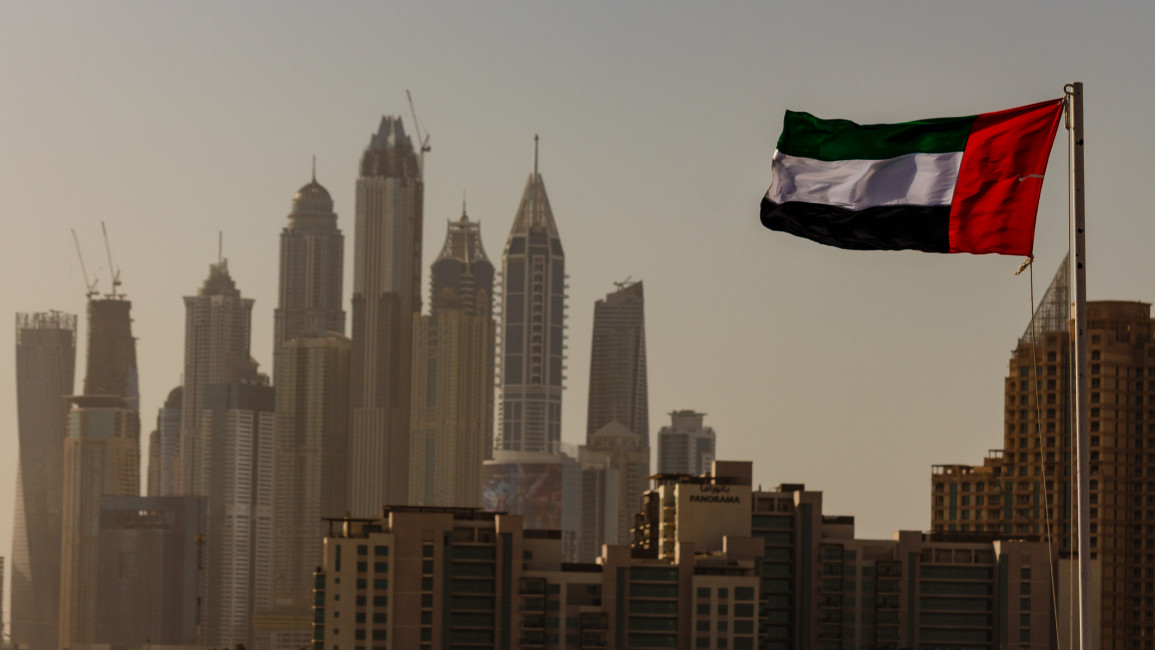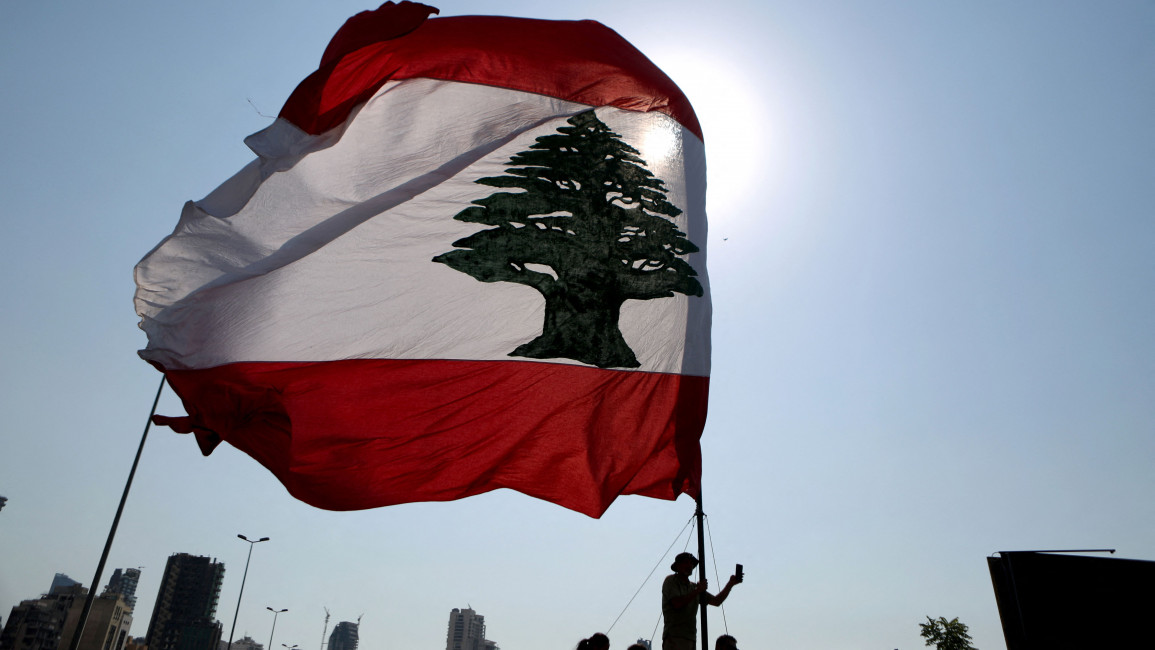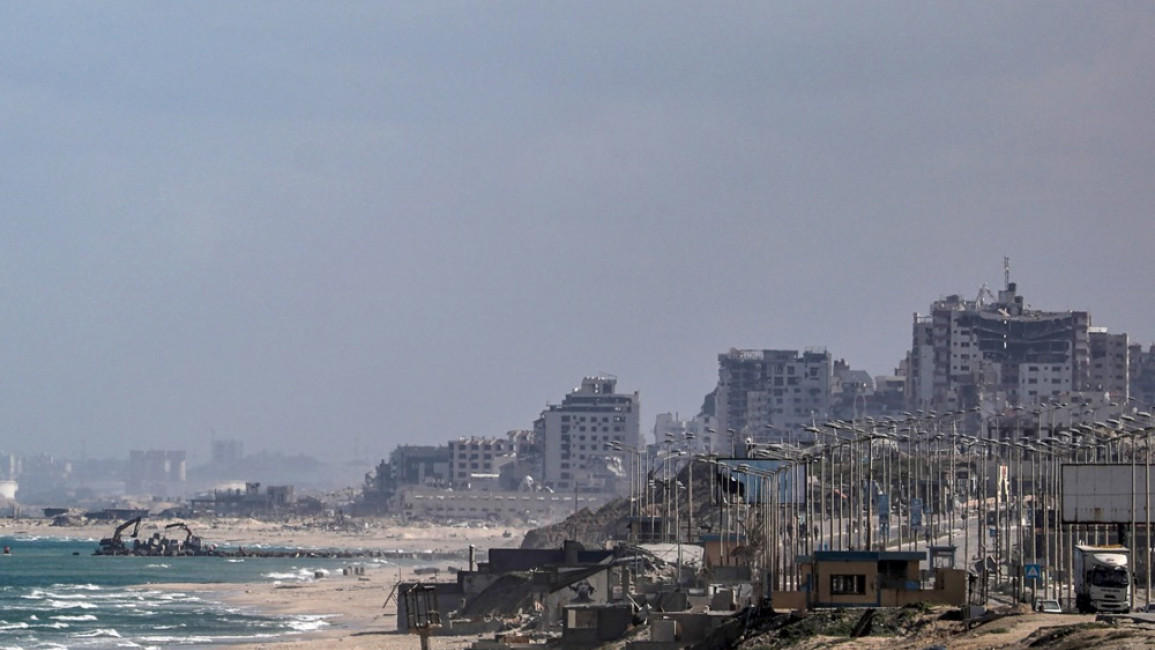
Will Hezbollah and the UAE overcome past problems?

For many years, the United Arab Emirates (UAE) has considered Lebanon’s Hezbollah to be a nefarious organisation.
Abu Dhabi has long seen Hezbollah as the Islamic Republic of Iran’s Lebanese ‘proxy’ which poses a serious national security threat to Gulf Cooperation Council (GCC) states. In 2016, the GCC designated Hezbollah a terrorist entity.
Hezbollah, for its part, has in recent years made no secret of its staunch opposition to many aspects of the UAE’s foreign policy. These include driving the Abraham Accords, lobbying the Trump administration to impose “maximum pressure” on Iran, intervening militarily in Yemen, and initially supporting anti-government forces in Syria after the Arab Spring erupted in 2011.
Yet, on 19 March, Wafiq Safa, the head of Hezbollah’s Liaison and Coordination Unit, travelled by private plane to Abu Dhabi. Safa visited the UAE to try to secure the release of more than a dozen Lebanese prisoners held in the Gulf country.
All of these Lebanese nationals are Shia Muslims. Some are serving life sentences. Emirati authorities charge them with giving support to Hezbollah. Yet, there are media outlets in Lebanon which deny these charges and maintain that these prisoners have committed no crimes in the UAE.
"While talk of any Hezbollah-UAE rapprochement is extremely premature, Wafiq Safa's visit to Abu Dhabi could possibly constitute the first step in an easing of tension between the Lebanese group and the Gulf country"
Since news of Safa’s visit broke, there have been many discussions among analysts about the motivations for, and potential outcomes of, his trip to the UAE. Different sources have made different claims as to whether Safa’s meeting in the UAE was about anything besides the detained Lebanese citizens.
Dr Karim Emile Bitar, a professor of international relations at the Saint Joseph University of Beirut, explained that because Safa is a “usually extremely secretive” senior figure in Hezbollah who “rarely publicises his delicate missions,” his visit to the UAE was “quite intriguing and perplexing”. Safa’s trip to Abu Dhabi undoubtedly raises many questions, Dr Bitar told The New Arab.
The Lebanese scholar suggested that Abu Dhabi’s engagement with Hezbollah last month is possibly comparable to the UAE’s decision to reopen its embassy in Damascus in December 2018.
Abu Dhabi making that move vis-à-vis the Syrian regime was about the UAE acting “sort of as a pathfinder, a scout, going ahead to see the situation in order for Saudi Arabia to follow up a couple of years later,” said Dr Bitar. “The UAE could be playing this role, testing the waters [with Hezbollah],” he added.
Considering the recent history of hostility between Hezbollah and the UAE, this visit must be understood within the context of various state and non-state actors in the Middle East acting more pragmatically toward each other and opening doors to better relationships through diplomacy.
While talk of any Hezbollah-UAE rapprochement is extremely premature, Safa’s visit to Abu Dhabi could possibly constitute the first step in an easing of tension between the Lebanese group and the Gulf country.
Safa’s “rare visit” was a “total surprise” and for the UAE it was a “big deal” to reach out to Hezbollah, explained Dr Abdulkhaleq Abdulla, a Dubai-based Emirati political scientist, in an interview with TNA.
While the Hezbollah official’s meeting with Emirati authorities focused on releasing Lebanese prisoners, Dr Abdulla said that other issues were discussed during Safa’s three-day visit to the Gulf country. He also mentioned that Safa returned to Lebanon with three demands from Abu Dhabi in exchange for the prisoners’ release.
These three demands, according to Dr Abdulla, included: First, “a clear admission” that the Lebanese nationals detained in the UAE were indeed Hezbollah-affiliated; second, “a commitment not to -reengage in spying activities” in the Gulf; and third, an end to all activities that pose “threats to Emirati interests”.
|
|
The Syrian factor
According to many media reports, the Syrian government played a critical role in facilitating Safa’s visit to the UAE. On 22 March, the Lebanese daily Al-Akhbar reported that the UAE “requested the initiation of direct communication” with Hezbollah while the Lebanese resistance group wanted a mediator, which led to Abu Dhabi purportedly asking Syrian President Bashar al-Assad to play that role.
“Several meetings” took place in Damascus with Safa and UAE National Security Advisor Sheikh Tahnoon bin Zayed al-Nahyan leading their respective sides in the Syrian capital. This initiation of Syrian mediation between Hezbollah and the UAE began before the outbreak of Israel’s war on Gaza in October 2023.
Of course, the UAE’s rapprochement with Syria and détente with Iran contributed to the conditions that made a high-ranking Hezbollah official’s visit to Abu Dhabi feasible for both the Lebanese organisation and the UAE. But some sources maintain that the Iraqis, far more than the Syrians, did most of the heavy lifting to facilitate Safa’s meeting in Abu Dhabi.
"The UAE's rapprochement with Syria and détente with Iran contributed to the conditions that made a high-ranking Hezbollah official's visit to Abu Dhabi feasible"
“In light of the rapprochement efforts between the UAE and Iran in recent years, including the restoration of diplomatic relations and the return of their respective ambassadors, it is very likely that Iran, through its close relationship with the Iraqi and Syrian governments, put forward or at least backed this initiative,” Dr Abdullah Baabood, an Omani scholar and visiting professor at Waseda University in Tokyo, said in an interview with TNA.
“In 2022, the UAE became the first Arab country to welcome President Assad since the eruption of Syria’s civil war, and in May 2023 the Arab League reinstated Syria’s membership, ending a 12-year suspension,” added Dr Baabood.
“With regional tensions on the rise and the increasing possibility of the spillover of the Gaza war further into the region, Safa’s visit to the UAE is a sign of intensifying efforts by the Gulf Arab countries to address and de-escalate region hostilities amid a perceived reduction in US security commitments to the region.”
Hezbollah's motivations for the visit
Hezbollah currently seeks to reduce tension in its relationships with GCC members. A main reason for this relates to Saudi Arabia and the UAE’s détente with Iran, as well as Saudi Arabia and the UAE’s restoration of diplomatic relations with Syria.
“By and large, both [Iran and Saudi Arabia] have taken the strategic decision to improve their relationship and therefore it makes no sense for Hezbollah not to follow the same lead,” Michael Young, a senior editor at the Malcolm H. Kerr Carnegie Middle East Center in Beirut, told TNA.
There is also an economic side. Lebanon’s economy relies heavily on remittances sent home from abroad, which makes the UAE and other Gulf states important to the Mediterranean country.
“I think that the UAE is one of the key countries in the Gulf and it’s obviously a big employer of Lebanese,” said Young. “It’s a place where, from a Lebanese perspective, it’s good to improve the relationship. If you have more Lebanese working in the Emirates, especially people from the Shia community, then this can have positive repercussions in terms of the economy [in Lebanon], at least in terms of remittances.”
|
|
When analysing Hezbollah’s interests in better relations with Abu Dhabi, there is a political factor in play. The Shia organisation requires “some kind of a Sunni cover for its dominant role in Lebanon,” explained Young.
“Today Saad al-Hariri is essentially considered someone who has shifted a little bit. He is now close to the Emiratis. Now, I think it’s very premature to talk about Hariri’s return to political life. And the fact is that Hariri will not return to political life unless he gets some kind of indication from the Saudis that they would accept this, and I don’t believe the Emiratis will push him forward unless there is some kind of a Saudi acquiescence,” he added.
“But at the same time, from Hezbollah’s perspective, there is no reason that they can’t improve relations with the country that is more or less now the country that…in effect, in one way or another, controls Hariri’s future in the near-term. Eventually, if there has to be a project with a Sunni leader in Lebanon, Hariri and Hezbollah could put together some type of a package deal between them. That’s from Hezbollah’s perspective.”
"By and large, both [Iran and Saudi Arabia] have taken the strategic decision to improve their relationship and therefore it makes no sense for Hezbollah not to follow the same lead"
The UAE's interest in dialogue with Hezbollah
Regarding Emirati interests, one must consider that Abu Dhabi has grave concerns about the ability of Iran and Tehran-aligned actors in the Middle East to harm the security of the UAE and other GCC states. This factor helps one understand some of Abu Dhabi’s potential motivations for allowing Safa to visit the UAE last month.
“For the UAE, de-escalating tensions with Hezbollah serves the dual purpose of allowing Abu Dhabi to mediate between Israel and Hezbollah while simultaneously reducing tensions between the UAE and Iran-aligned factions in the region, potentially safeguarding against further attacks such as the 2022 attack on Abu Dhabi by Yemen’s Houthis,” Dr Baabood told TNA.
There is also reason to consider Emirati interests in Lebanon’s political arena. With a host of countries seeking to play important roles in Beirut’s political scene, the UAE sees Saudi Arabia and Qatar doing so and might want to try to gain greater influence inside Lebanon.
“By improving relations with Hezbollah, the most influential political organisation in Lebanon, the UAE could benefit from increased influence in Beirut, potentially allowing it to play a role in Lebanon’s political deadlock,” said Dr Baabood.
Yet, whether or not more Emirati involvement in Lebanon bodes well for Lebanese interests is an entirely different discussion.
“The number of regional and international powers interfering in domestic Lebanese politics has always been significant. But today we have like ten or twelve countries trying to solve this crisis and I’m not really sure that it’s good news for Lebanon,” Dr Bitar told TNA.
“Everyone on the Lebanese political scene keeps lecturing about reclaiming our sovereignty, and yet they seem not to have a problem seeing foreign countries trying to choose our next president.”
|
|
The road ahead
Looking beyond Lebanon’s domestic politics and seeing the wider picture across the region, Abu Dhabi is working to build up an image as a relatively neutral state capable of maintaining healthy relations with all major players in the Middle East - from Iran to Israel - and close partnerships with all global powers - from the US to China and France to Russia.
Within this context, the UAE possibly seeks to start a new chapter with Hezbollah following Abu Dhabi’s moves to normalise/renormalise with Syria, Iran, and Israel. This could help Abu Dhabi leverage its often-contradictory relationships in the region in ways that could add to the perceived value that a growing number of state and non-state actors in the Middle East place on the UAE as a diplomatic player.
What seems clear is that both the UAE and Hezbollah are engaging in what can be described as “opportunistic pragmatism” at a time in which both Abu Dhabi and the Lebanese organisation have proven they can exert significant influence beyond the UAE and Lebanon’s borders.
“This particular moment of great danger in the region encourages such opportunistic pragmatism - even while, conversely, also encouraging more extremism,” Nicholas Noe, the president of The Exchange Foundation, said in a TNA interview.
“So, it is little surprise that these two relatively opposed actors who have deftly balanced conservatism and extremism - as well as pragmatism and obstinacy - decided to publicly raise the prospect of negotiations in order to explore another route to advance their interests.”
Yet, as Noe noted, the extent to which dynamics in the Middle East are deeply conflictual while peace is nowhere on the horizon, there is good reason to question how much a Hezbollah-UAE dialogue can do to change the region.
If the two sides can advance with some confidence-building measures such as removing Hezbollah from terrorist designation lists and Hezbollah cooling attacks on the UAE and other Gulf states in the media sphere, a Hezbollah-Abu Dhabi dialogue can “become more of a focal point for reliable message sending and peaceful deal-making as time goes on,” added Noe.
Giorgio Cafiero is the CEO of Gulf State Analytics.
Follow him on Twitter: @GiorgioCafiero





